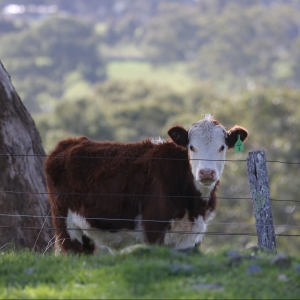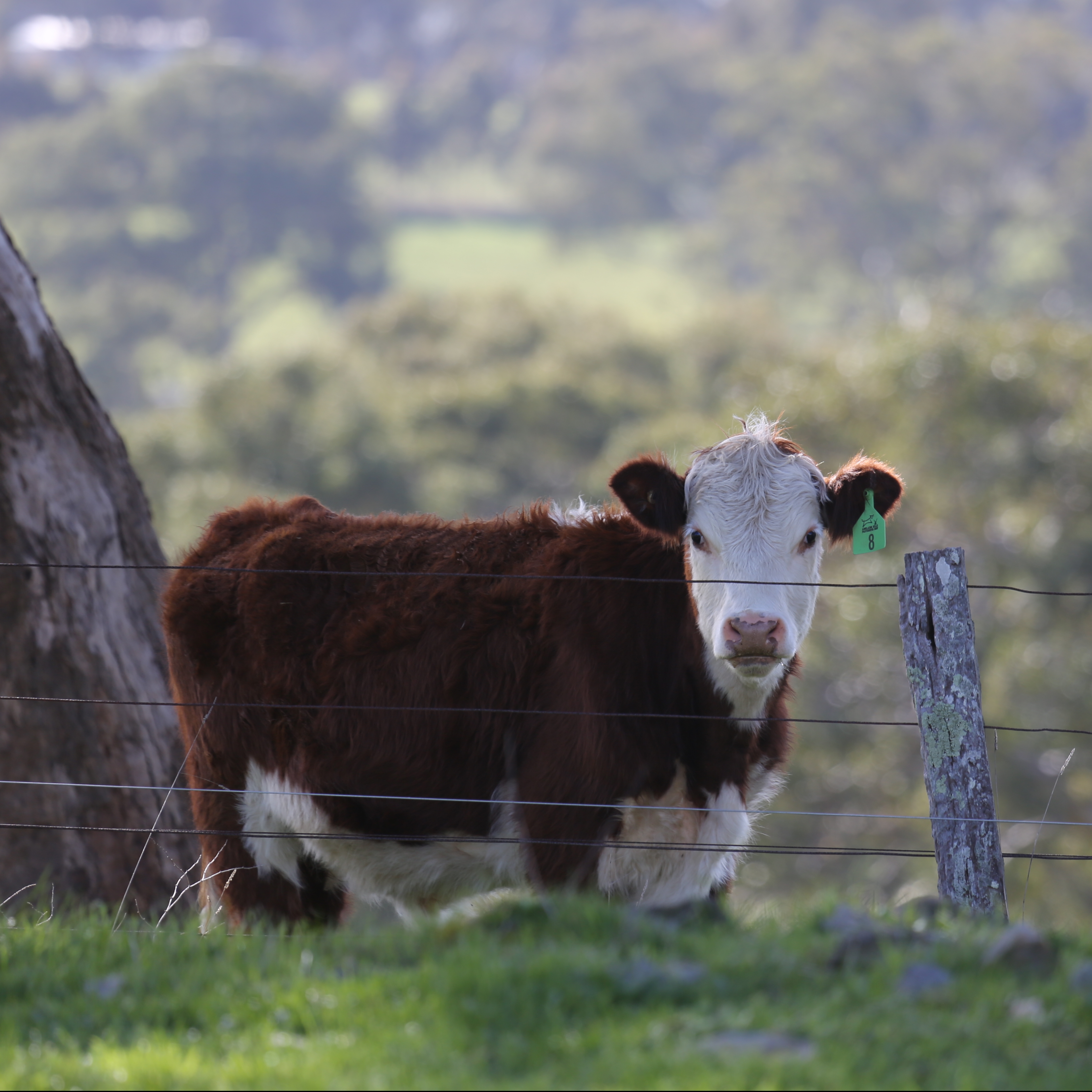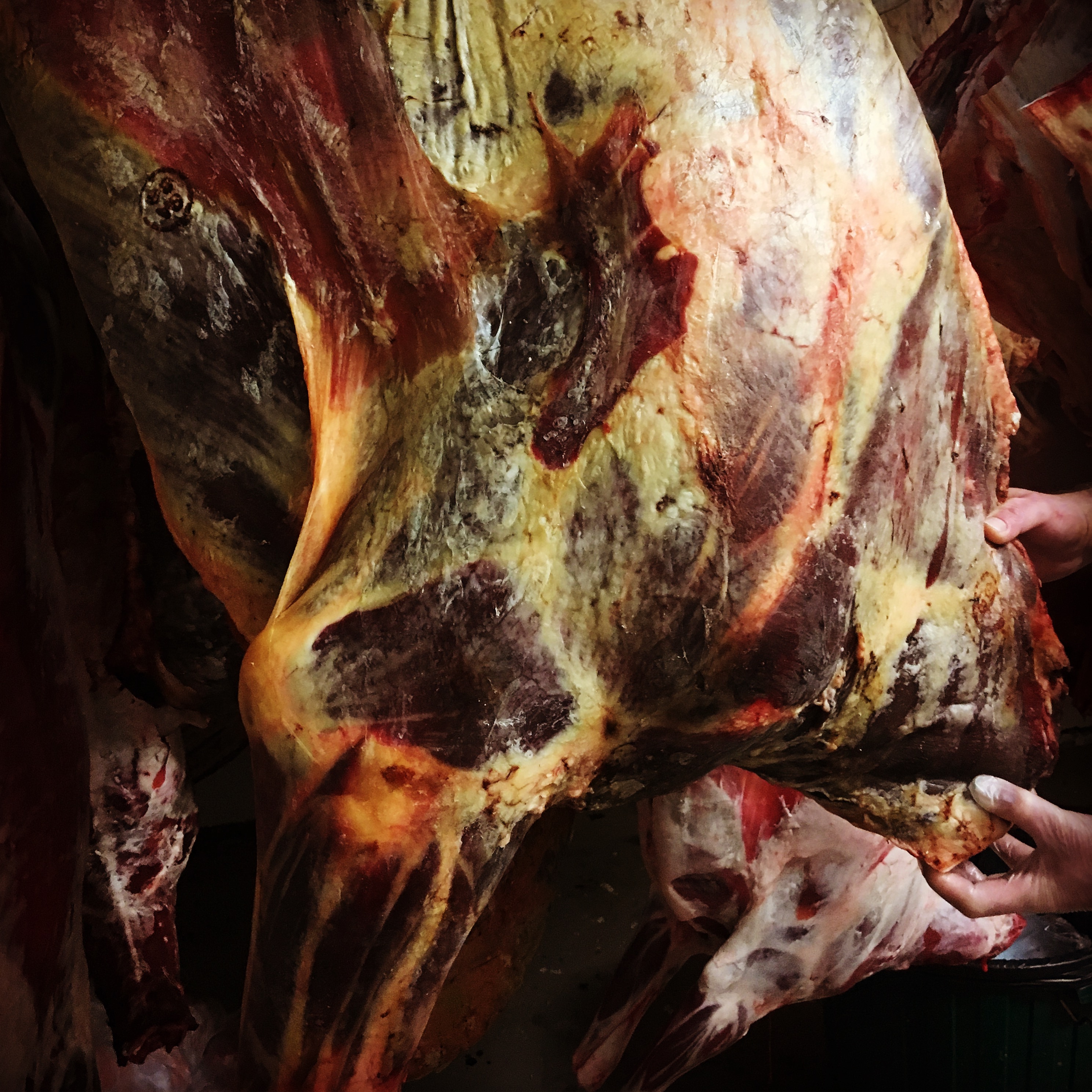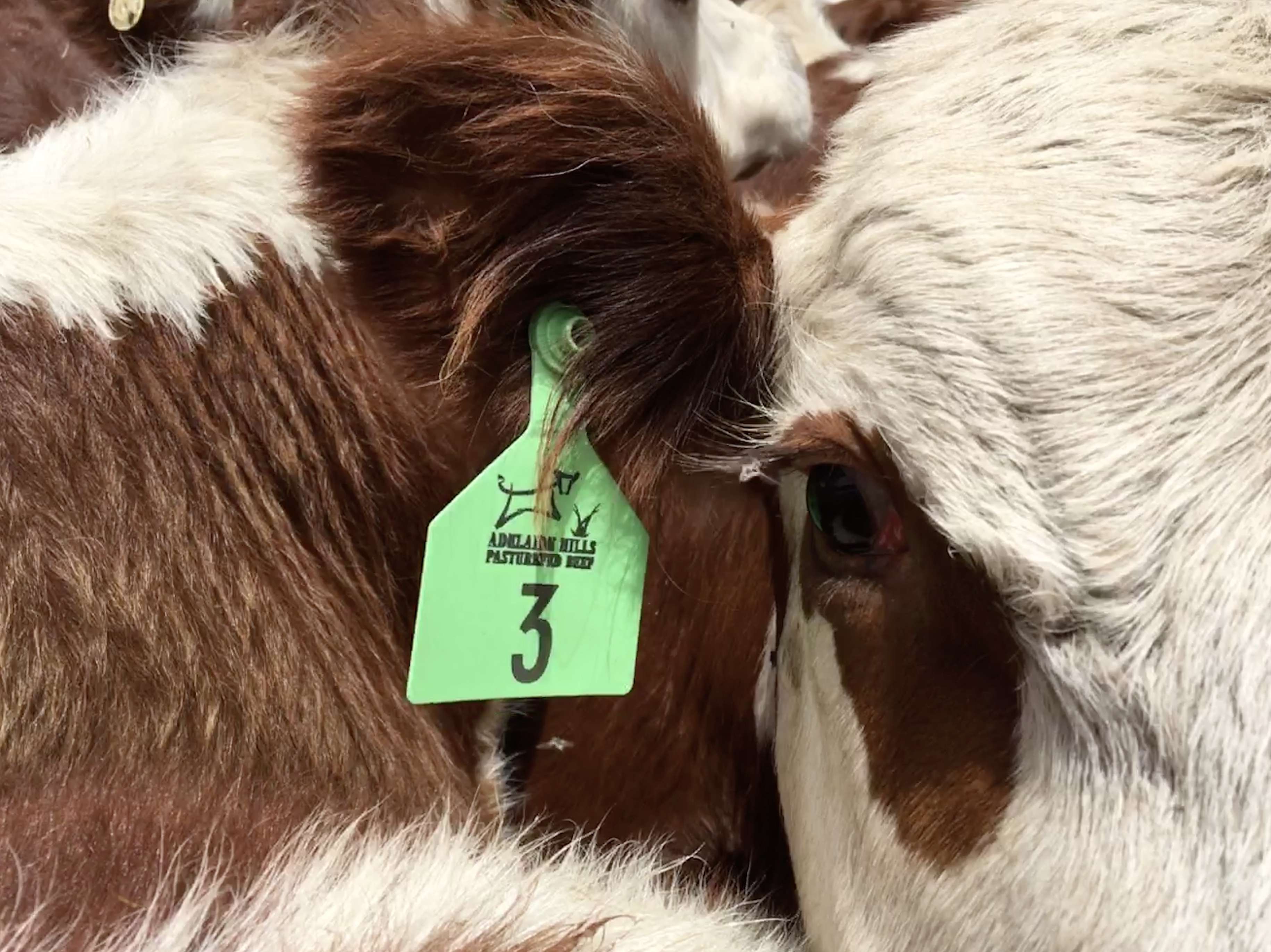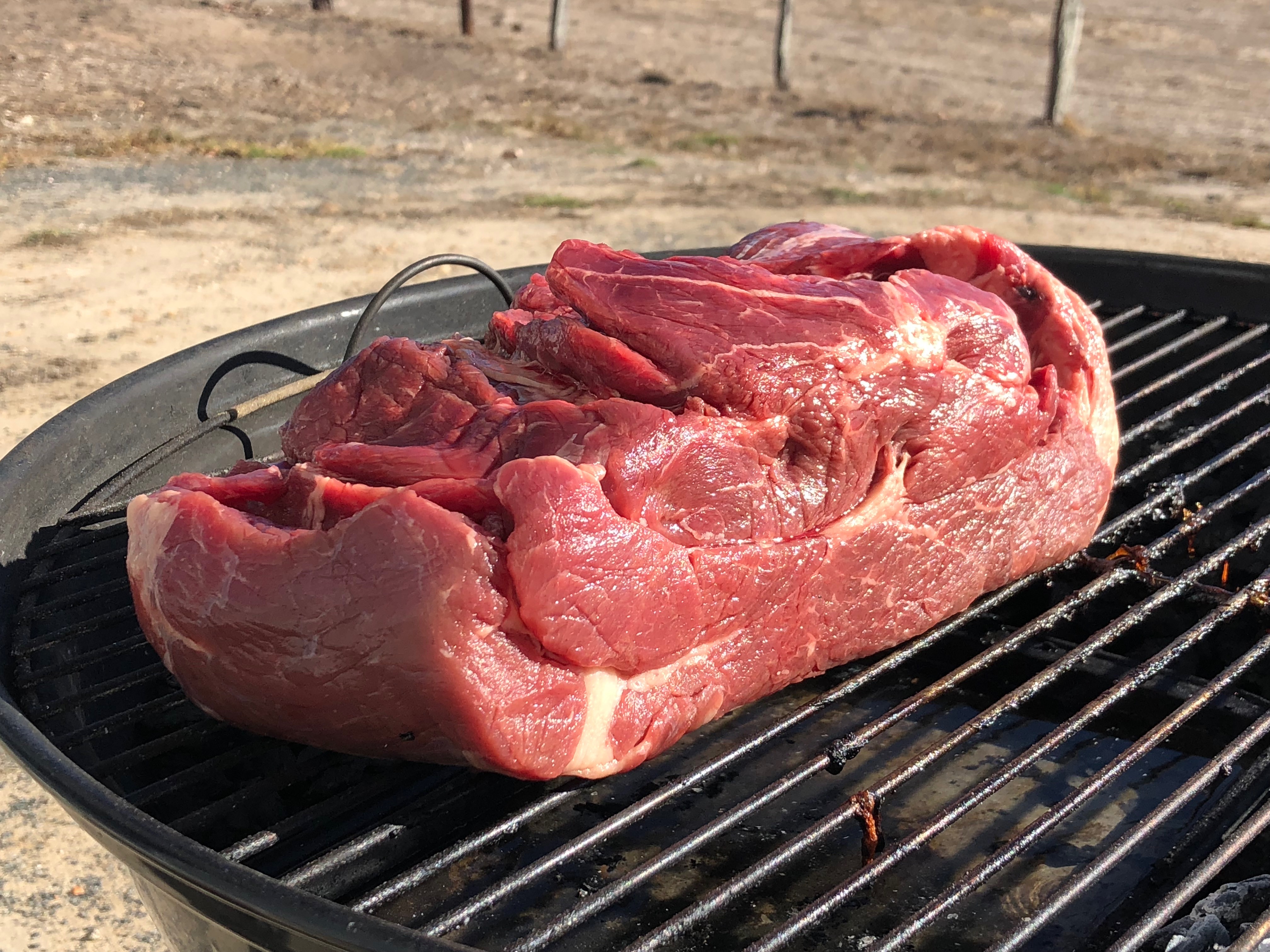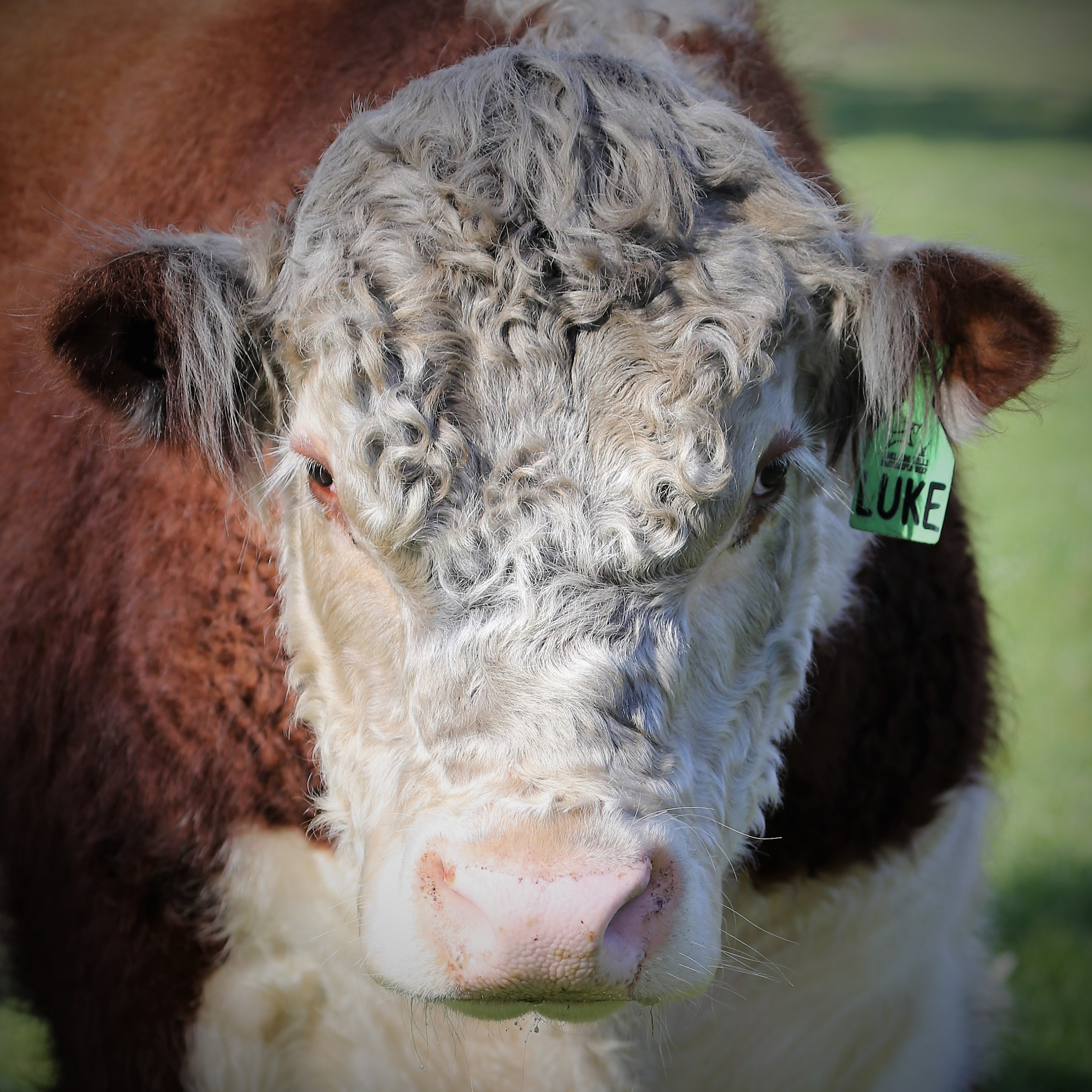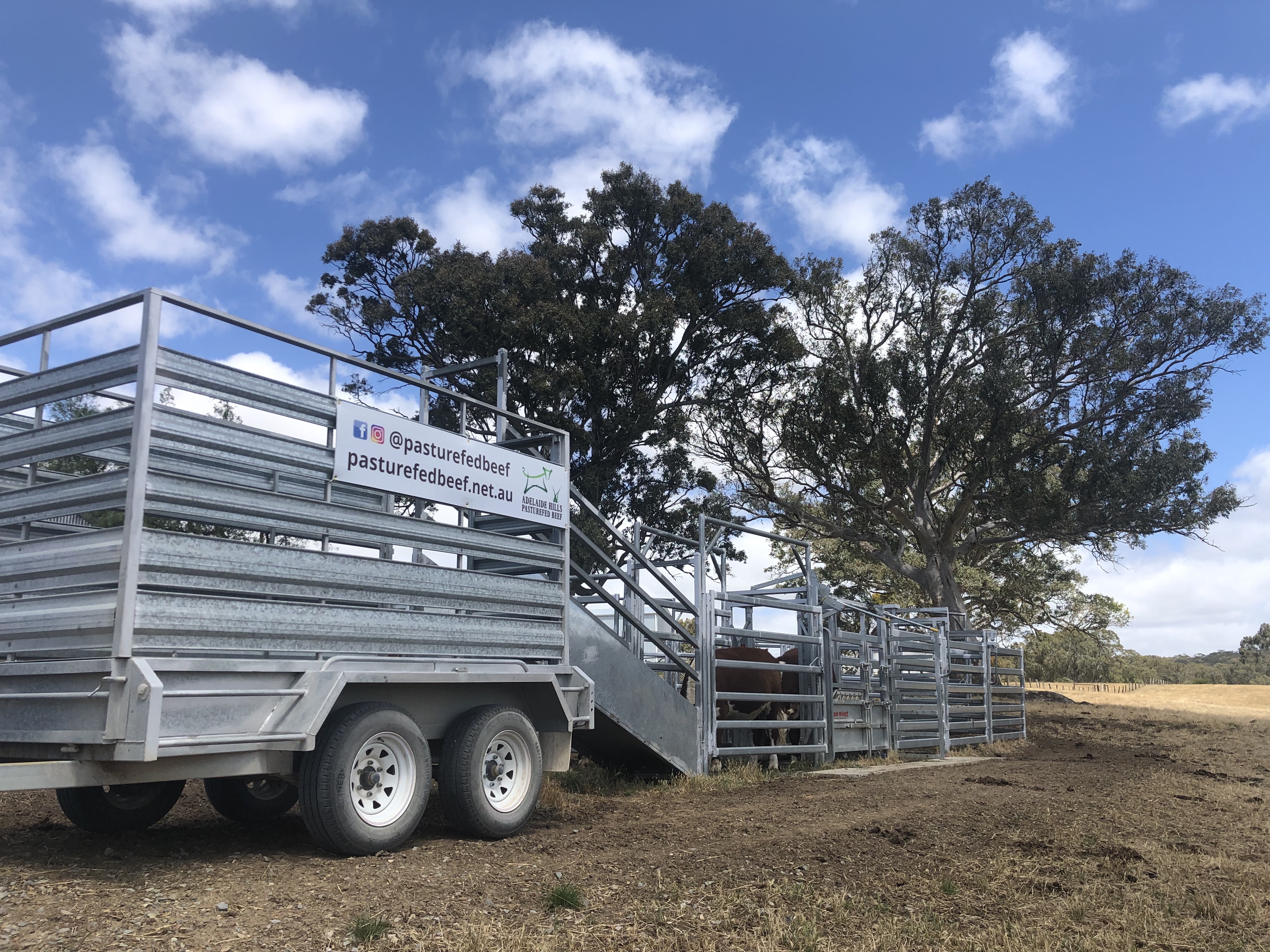Adelaide Hills Pasturefed Beef
Local… Sustainable… Ethical… Seasonally produced…
 Our Property
Our Property
Our farm comprises 43 hectares of picturesque, gum studded, rolling hills at Harrogate in the Adelaide Hills…
 Our Cattle
Our Cattle
Principally comprise of Poll Herefords, a breed with calm temperament and which do not grow horns…
What is Pasture Fed or Grass Fed Beef?
Cattle have evolved to feed on grasses and pastures, grazing the world’s range lands for many thousands of years. Free range grazing on pastures is therefore the natural way to raise and finish cattle compared with grain feeding which typically utilise small, high density feedlots.
Pasture fed, or grass fed, beef comes from cattle that have had access to roam and graze open pastures as described above. The cattle have not been confined for the purposes of intensive feeding for production and are free from Hormone Growth Promotants (HGP) and antibiotics.
There is more to the comparison than just the method of free range grazing though. The key benefits of pasture fed beef as opposed to grain fed beef are as follows:
- Pasture fed beef is lower in overall fat than grain fed beef, including saturated fat, yet has the advantage of providing more omega-3 fats. These crucial healthy fats are plentiful in meat from animals that have grazed on omega-3 rich grass. Pasture fed beef typically has twice as many omega-3 fats as grain fed beef.
- Pasture fed beef is up to four times higher in vitamin E than grain fed beef and 30 – 40% higher in conjugated linoleic acid (CLA). CLA can help fight cancer and clogged arteries, reduce body fat and prevent or delay the onset of diabetes.
- Pasture fed beef is a particularly good source of iron, zinc and vitamin B. Lean beef within your diet several times a week can help you consume the amount of iron your body needs for your red blood cells to transport enough oxygen to all parts of your body. Lean beef provides a natural source of many B group vitamins, B-12 for a healthy nervous system and B-6 for a strong immune system.


